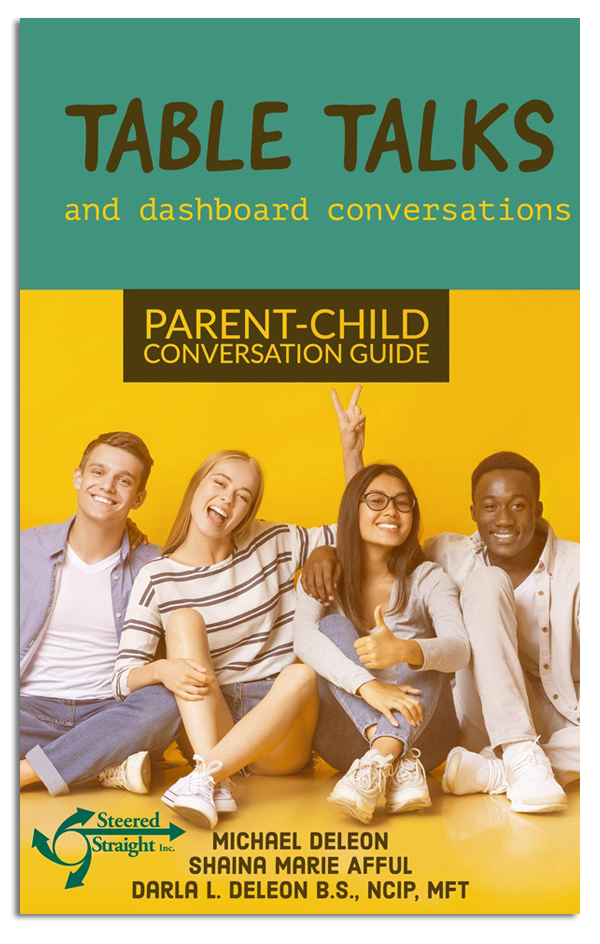
In today’s substance abuse pandemic, the pandemic within the pandemic, we are experiencing a worsening of was already the worst public social health crisis America has ever seen. The threat to our youth is greater than ever and with the chasm between what parents needed to know in the ’80s and the current trends necessary to understand now, the importance of parental education and awareness can’t be overestimated. It is vital! The threats to youth have changed over the years, and the terminology parents thought they understood is in need of new understanding. What are the conversations you need to have? Where does connection fit in with this digital world? Where do we go from here?
My name is Michael DeLeon. I am a recovered addict, ex-offender, former gang member and a national leader in prevention, recovery, addiction advocacy and criminal justice reform. This past six-month period has been an experience no family was prepared for, but the uncertainty of the next six months, and beyond, might be equally unsettling for some.
Whether your children are back in school full-time, distance learning from home or are participating in a hybrid model, the parent-child conversations are more important than they have ever been. Over 20 years of research has proven that the family dinner time is crucial. Younger kids gain incredible vocabulary from these conversations, more so than even reading to them. Older teenagers reap intellectual benefits and academic achievement from family conversations at the dinner table. Adolescents who ate family meals 5 to 7 times a week were twice as likely to get A’s in school as those who ate dinner with their families fewer than two times a week.
It is more than having dinner with your kids five nights per week. That’s the “gold standard” from nearly every prevention organization and every prevention professional in America. Those meals are important, but it’s the conversations that are vital. What do you say? What should be discussed? Why has the adolescent suicide rate increased 56% in the past 10 years? Why is adolescent suicide rising faster than every other age demographic? Why is teen drug use surging again? What should I talk to my kids about?
These are some of the questions we get on a daily basis from thousands of parents all across America. It’s why the family conversations are so vital, especially at this time in our country where isolation is causing such a shift in how kids process the world around them, and why building protective factors is so critical. Family conversations can accomplish those goals.

Even if your family doesn’t have those five dinners, at least have five conversations. Maybe it’s three dinners, a lunch and a breakfast. Maybe one of the five conversations is a picnic talk, or a walk talk. Maybe, just maybe, you can have a few of those conversations in the car! The team at my organization, Steered Straight, came up with an exhaustive year-long guide for families, Table Talks and Dashboard Conversations. This guide helps parents have some of those critical conversations regardless of where you are.
Consistent and open communication with your children will boost their self-esteem, improve their self-image and empower them to make long-term healthy decisions. They will begin to feel “heard” and understood by you, the most important person in their life, and they will be less likely to adhere to the voice of negative influencers or counter-productive social norms.
Steered Straight has published the first-of-its-kind book, Table Talks and Dashboard Conversations, containing more than 365 conversation suggestions, as an easy-to-use, journaling guide.
Each month is broken down into a theme, such as The Drug Epidemic and Core Values. The conversations discuss subjects including leadership readiness, bullying and internet safety. The book discusses the “trifecta gateway” (alcohol, marijuana and nicotine), the e-cigarette and vaping trends, marijuana legalization and commercialization and the digital relationship to substance use and abuse.
Each conversation is designed to be three minutes long, but you’ll be surprised how many of those three-minute conversations turn into 30-minute conversations. That’s the beauty of them. Some will be short and to the point. Some may evolve into life-changing moments.
Some of the topics for discussion include:
– How you soothe yourself when you are not happy
– Asking your child to explain addiction, how to recognize it in someone, and what it might look like
– Body language and how it affects a conversation
– Talking about things you enjoy, even simple things, contrasted by depression and how it can immobilize you if you let it
– What it means to be creative, contrasted with the way drugs destroy creativity
– How the body and brain will become dependent on drugs and unable to function without them, and gaining an understanding of drug tolerance
The book also provides family field trip ideas for every weekend, with more chances to bond and build life lessons.
___
Table Talks and Dashboard Conversations is $19.99 and is available at steeredstraight.org, on Amazon or at the Murfreesboro Steered Straight Thrift Store at 1222 Park Ave. For more information, call 856-691-6676 or 615-962-7539 or visit tabletalksprevention.org.
___













